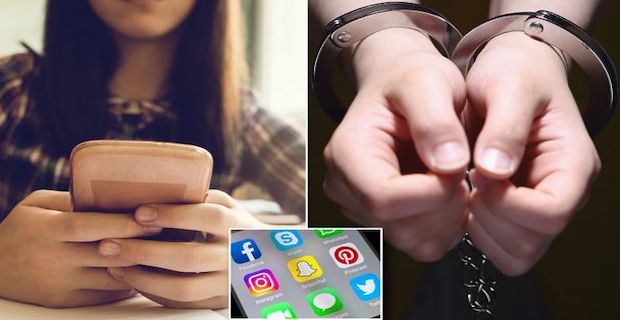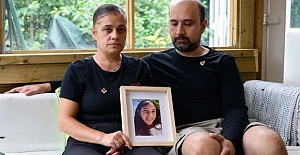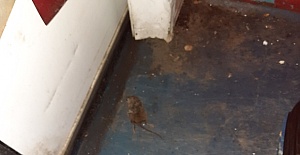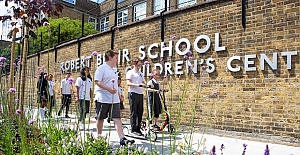Sex offenders are grooming children on Instagram more than on any other online platform, a charity has found.
Police in England and Wales recorded 1,944 incidents of sexual communication with children in the six months to September 2018, the NSPCC said.
Instagram was used in 32% of the 1,317 cases where a method was recorded, Facebook in 23% and Snapchat in 14%.
Instagram and Facebook said they "aggressively" fought grooming, while Snapchat said it was "unacceptable".
Following pressure from campaigners, sexual communication with a childbecame an offence in April 2017.
In the 18 months that followed, more than 5,000 online grooming offences were recorded by police, according to thedata gathered by the NSPCC.
The charity said said the figures did not "fully reflect the scale of the issue", as many crimes went undetected or unreported.
Where the police logged age and gender, seven out of 10 victims were girls aged 12 to 15. One in five was aged 11 or under. The youngest victim was five years old.
The NSPCC said 39 of the 43 police forces in England and Wales responded to Freedom of Information requests, with only Surrey, Sussex, Northampton and City of London police failing to provide data.
The children's charity is calling for new laws to force social media firms to do more to protect children.
'We exchanged texts which quickly became sexual'
In one case of abuse given by the charity, a girl was groomed by a 24-year-old man when she was 13.
Emily - not her real name - met the man through a friend. He had introduced himself, saying he was 16, which quickly changed to 18. She told him she was 13. Later that evening he added her on Facebook and Snapchat.
Emily said: "It escalated very quickly from there. We exchanged texts which quickly became sexual, then photos and videos before arranging for him to come and pick me up after school.
"He drove me somewhere quiet… and took me into the woods and had sex with me. He drove me in the direction of home straight afterwards, refusing to even talk, and then kicked me out of the car at the traffic lights.
"I was bleeding and crying. This was my first sexual experience."
Emily's mother said: "We felt as though we had failed as parents - we knew about these social media sites, we thought we were doing everything we could to ensure our children's safety when they were online, but we still couldn't protect Emily."
'Overwhelming evidence'
NSPCC chief executive Peter Wanless accused social media networks of "10 years of failed self-regulation".
"These figures are overwhelming evidence that keeping children safe cannot be left to social networks. We cannot wait for the next tragedy before tech companies are made to act," he said.
Ahead of the government publishing a delayed white paper on online harm, the charity is pushing for statutory regulation to enforce a legal duty of care to children on social networks, with a penalty of substantial fines if they fail.
'Robust processes'
A National Crime Agency spokesperson said: "It is vital that online platforms used by children and young people have in place robust mechanisms and processes to prevent, identify and report sexual exploitation and abuse, including online grooming.
"Children and young people also need easy access to mechanisms allowing them to alert platforms to potential offending."
A spokesperson for Facebook, which also owns Instagram, said keeping young people safe was its "top priority".
"We use advanced technology and work closely with the police and CEOP [Child Exploitation and Online Protection] to aggressively fight this type of content and protect young people."
A Snapchat spokesperson said the exploitation of any member of its community, especially a young person, was "absolutely unacceptable".
"We go to great lengths to prevent and respond to this type of illegal activity on our platform," they added.
The platform recommends young people keep their privacy settings restricted, do not share their username publicly and do not add people they do not know as friends.
A spokesperson from the Home Office said both the home secretary and culture secretary had "engaged tech firms about their responsibilities towards protecting people".
Last year the home secretary announced a £250,000 "innovation call" for organisations to help develop new ways to disrupt the live streaming of abuse.
BBC News


 CTCA UK Condemns the Political Forcing Out of Afzal Khan MP for Engaging with Turkish Cypriots
CTCA UK Condemns the Political Forcing Out of Afzal Khan MP for Engaging with Turkish Cypriots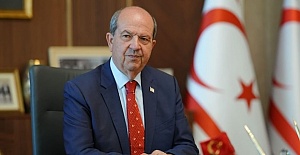 Tatar: “Reaction to MP’s TRNC visit is yet another stark example of the Greek Cypriot leadership’s primitive and domineering mentality”
Tatar: “Reaction to MP’s TRNC visit is yet another stark example of the Greek Cypriot leadership’s primitive and domineering mentality”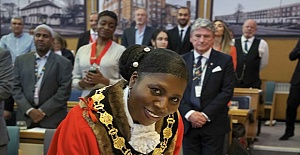 Margaret Greer has been sworn in as the new Mayor of Enfield
Margaret Greer has been sworn in as the new Mayor of Enfield Prime Minister Keir Starmer's 2025 Easter message
Prime Minister Keir Starmer's 2025 Easter message Team Enfield ranks fifteenth the in London Youth Games
Team Enfield ranks fifteenth the in London Youth Games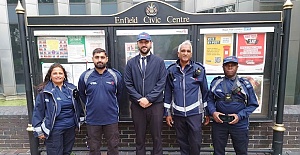 Parking enforcement boosted with more officers on patrol in Enfield
Parking enforcement boosted with more officers on patrol in Enfield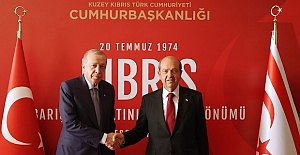 Ersin Tatar meets with President Erdoğan
Ersin Tatar meets with President Erdoğan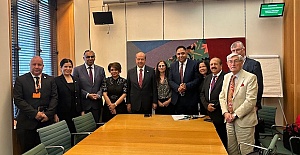 President Ersin Tatar Holds Ministerial-Level Meeting with UK Minister for Europe
President Ersin Tatar Holds Ministerial-Level Meeting with UK Minister for Europe UEFA Europa League and UEFA Conference League draws to be combined into one single show
UEFA Europa League and UEFA Conference League draws to be combined into one single show EuroLeague schedule for 2025-26 season announced
EuroLeague schedule for 2025-26 season announced Zeynep Sonmez becomes first Turkish tennis player to reach third round at Wimbledon
Zeynep Sonmez becomes first Turkish tennis player to reach third round at Wimbledon European champions Arsenal Women will play all of their league matches at the Emirates Stadium
European champions Arsenal Women will play all of their league matches at the Emirates Stadium Enfield Labour welcomes the completion of A10 average speed cameras extension.
Enfield Labour welcomes the completion of A10 average speed cameras extension.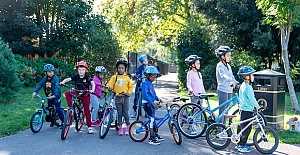 TfL opens 2025 grants for community groups to encourage more walking, cycling and active travel in the capital
TfL opens 2025 grants for community groups to encourage more walking, cycling and active travel in the capital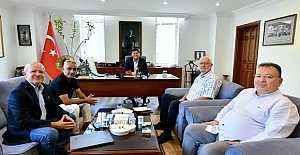 Fethiye Launches International Digital Tourism Campaign with UK-Based Publisher
Fethiye Launches International Digital Tourism Campaign with UK-Based Publisher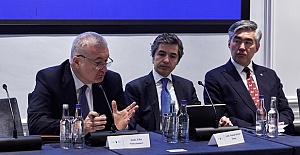 Highlights from the 3rd Trans-Caspian Connectivity Conference in London
Highlights from the 3rd Trans-Caspian Connectivity Conference in London





